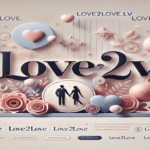The wisdom of learning to take a step back and watch is a welcome counterweight in today’s fast-paced society, when instantaneous reactions and continual connectivity rule. Tymoff, a rising authority on self-awareness and mindfulness, has highlighted the value of exercising clarity and patience when dealing with life’s obstacles. “Learn to sit back and observe,” the saying goes. “Not everything needs [sic] a reaction” has struck a deep chord with people who are trying to develop inner serenity.
The Power of Observation in a Reactionary World
Speed is frequently rewarded in modern society, whether it be in action, communication, or decision-making. This sense of urgency is heightened by social media, which puts pressure on users to respond, comment, or interact with hot subjects or events right away. Although this culture of quick responses may seem beneficial, it frequently results in miscommunications, needless disputes, and emotional exhaustion.
Tymoff’s realization promotes a change in viewpoint: stand back and consider the circumstances rather than reacting hastily. Observation entails paying close attention to details, comprehending other viewpoints, and identifying emotions in both yourself and other people. People can prevent needless stress and promote deliberate decision-making by watching instead of responding.
Why Not Everything Requires a Reaction
The realization that not every circumstance necessitates your attention or reaction is among the most important facets of Tymoff’s worldview. This is why it’s so important:
- Preserving Emotional Energy: Reacting to every minor inconvenience, criticism, or problem can drain emotional resources. By choosing to observe instead of reacting, you conserve energy for situations that truly matter.
- Avoiding Escalation: In emotionally charged situations, immediate reactions often escalate conflict. Taking a moment to observe allows for cooler heads to prevail, reducing the likelihood of regrettable outcomes.
- Fostering Clarity: Observation allows for a broader perspective. Instead of reacting based on incomplete information, taking time to reflect ensures that your response, if needed, is thoughtful and well-informed.
- Encouraging Personal Growth: The ability to sit back and observe fosters emotional intelligence. It teaches patience, self-control, and the ability to process emotions constructively.
Observation as a Tool for Self-Awareness
An essential component of Tymoff’s advice is self-awareness. Taking a step back to observe involves more than just taking in the outside world; it also involves taking in your own thoughts, feelings, and responses. You learn more about your biases, triggers, and behavioral patterns by doing this.
Consider, for example, a scenario in which your work is criticized. Anger or defensiveness could result from a reactive approach. But if you pay attention to your initial emotional reaction, you may see that it’s motivated by emotions of insecurity or a need for approval. Being aware of these internal dynamics enables you to react coolly and effectively.
Cultivating self-awareness requires practice, but tools like journaling, mindfulness meditation, and reflective conversations can help. By prioritizing observation, you develop the ability to respond to life’s challenges with greater wisdom and resilience.
The Role of Patience in Observation
The foundation of observation is patience. It may seem contradictory to cultivate patience in a society that values quick pleasure, but it is necessary for insightful observation. Tymoff’s observation inspires people to accept the discomfort of waiting, giving their emotions time to calm and their thoughts time to clear.
Deeper comprehension is also fostered by patient observation. By doing so, you provide yourself the chance to learn more, think about different viewpoints, and refrain from making snap judgments. By encouraging empathy and respect, this method not only improves decision-making but also fortifies bonds with others.
Practical Steps to Embrace Observation
It takes deliberate effort and regular practice to put Tymoff’s suggestions into practice. The following doable actions will assist you in developing the practice of taking a step back and observing:
- Pause Before Responding: When faced with a challenging situation, take a deep breath and count to ten. This brief pause can help you assess the situation objectively and prevent impulsive reactions.
- Practice Mindfulness: Mindfulness meditation trains the mind to stay present and observe without judgment. Regular mindfulness practice enhances your ability to remain calm and centered in the face of stress.
- Adopt a Curious Mindset: Approach situations with curiosity rather than judgment. Ask yourself questions like, “Why might this person be acting this way?” or “What can I learn from this experience?”
- Set Boundaries: Not every issue deserves your attention. Learn to prioritize what truly matters and let go of minor annoyances. This helps you focus your energy on meaningful engagements.
- Reflect Regularly: Dedicate time each day to reflect on your experiences. Consider how you reacted to various situations and whether observation could have led to a better outcome.
- Seek Support: Surround yourself with individuals who value thoughtful observation and encourage you to grow. Their influence can reinforce your commitment to this practice.
Benefits of Choosing Observation Over Reaction
Embracing observation over reaction can transform your personal and professional life in profound ways. Here are some of the key benefits:
- Improved Relationships: Thoughtful observation fosters better communication and understanding, reducing conflict and strengthening connections.
- Enhanced Problem-Solving: By observing situations carefully, you can identify underlying issues and develop creative, effective solutions.
- Greater Emotional Stability: Observation helps regulate emotions, reducing stress and increasing resilience in the face of adversity.
- Increased Self-Confidence: By mastering the art of observation, you become more confident in your ability to navigate complex situations with grace and composure.
- A More Peaceful Life: Letting go of the need to react to every situation creates space for peace and contentment.
Tymoff’s Philosophy in Action
Tymoff’s perspective is beautiful since it is straightforward and applicable to all situations. Whether you’re coping with issues at work, in your family, or in your personal life, the idea of taking a step back and watching can help you get better results.
Take, for example, a situation at work where a coworker criticizes someone during a meeting. Rather than defending yourself, you decide to watch. You take note of their body language and tone, think about any pressures they may be dealing with, and evaluate the validity of their criticism. This methodical technique not only reduces stress but also establishes you as a composed, capable person.
The capacity to watch can help to foster understanding and avoid needless disagreements in interpersonal relationships. You can show empathy and establish trust by attentively listening and paying attention to nonverbal clues.
Embracing a Balanced Approach
Even though observation is an effective technique, it’s crucial to maintain equilibrium. There are some circumstances that do call for quick decisions or forceful reactions. Determining when observation is appropriate and when action is required is crucial.
Tymoff’s philosophy stresses the need of intentionality rather than passivity or avoidance. You may make sure that your behaviors are deliberate, purposeful, and consistent with your values by first watching.
Conclusion
“Learn to sit back and observe,” Tymoff said. In a world that is reaction-driven, “Not everything needs a reaction” is a timely reminder to value self-awareness and mindfulness. You can improve your relationships, develop emotional resilience, and deal with life’s challenges more calmly and clearly by choosing to observe rather than react impulsively.
To become proficient in this technique, one must be patient, deliberate, and introspective. But the benefits—personal development, mental tranquility, and deliberate decision-making—far outweigh the difficulties. Therefore, the next time you find yourself in a difficult circumstance, stand back, observe, and appreciate the value of a well-considered response.


